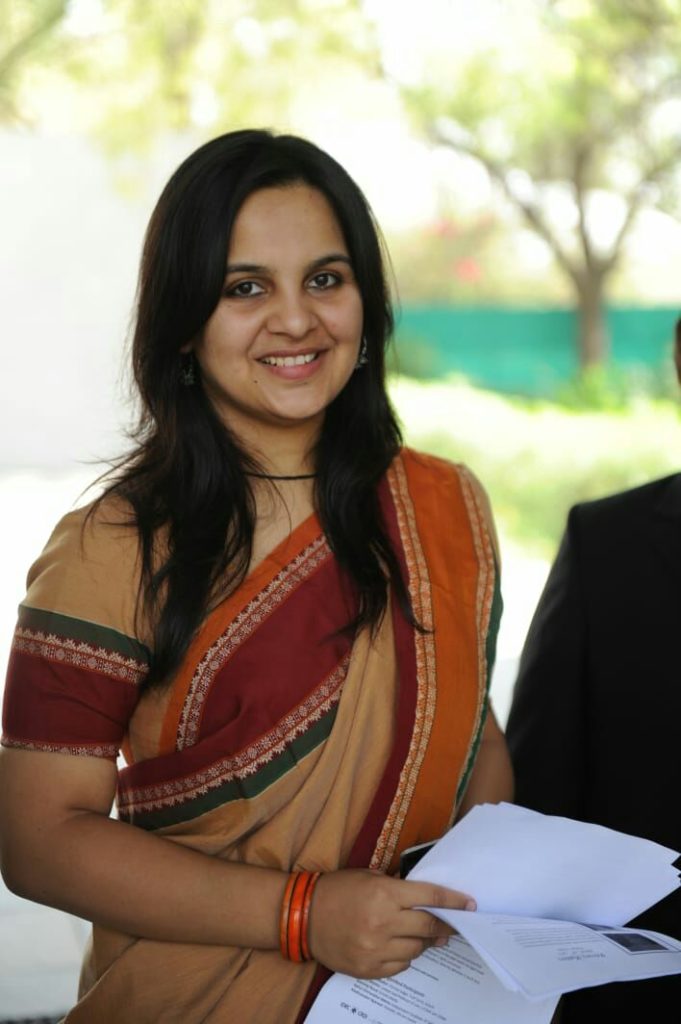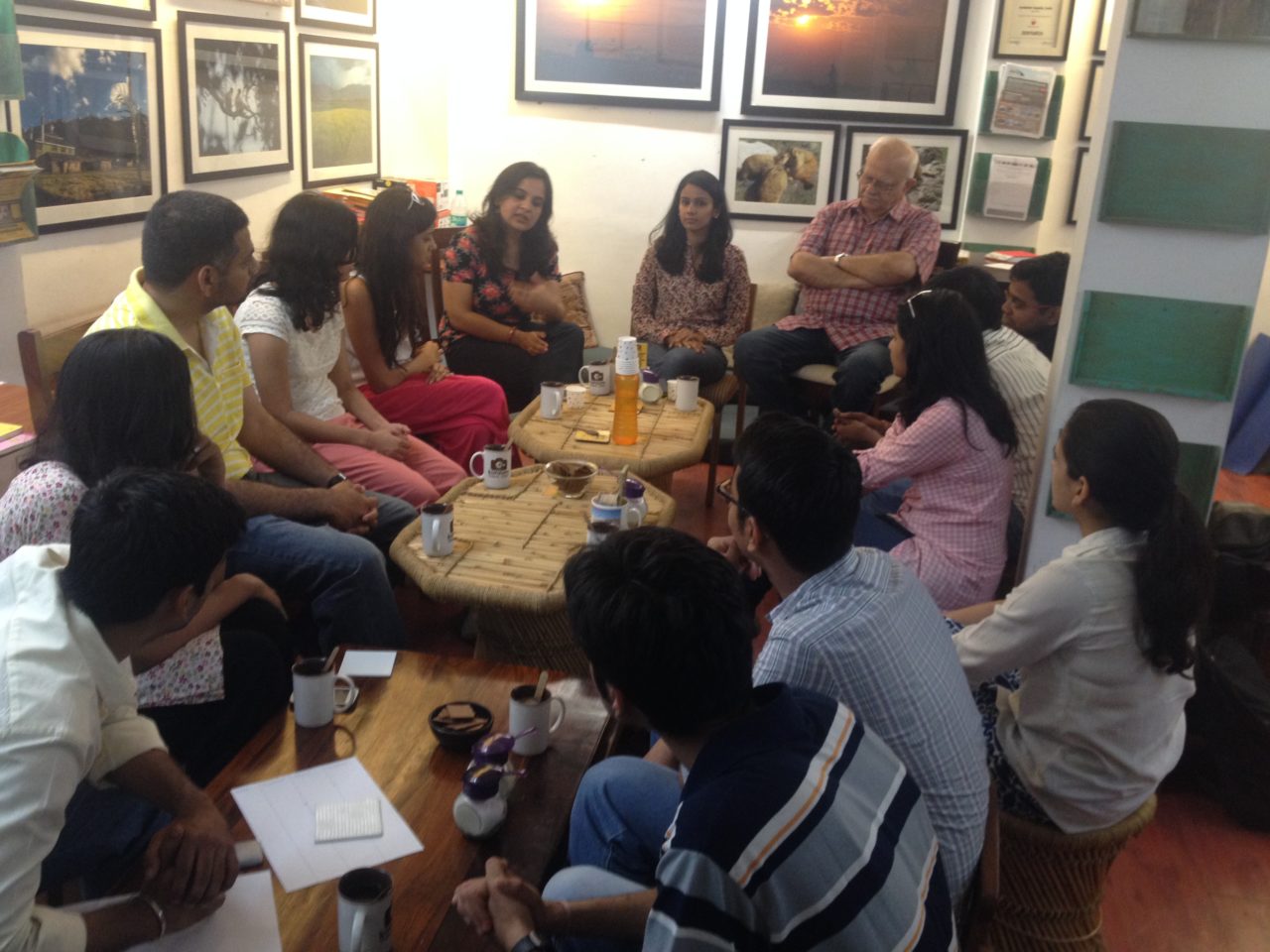Interview by Swathi Bhat | Edited by Amelia Chew
In November 2018, LawTech.Asia co-organised the inaugural APAC Legal Hackers Summit alongside Singapore Legal Hackers and the Singapore Academy of Law’s Future Law Innovation Programme (FLIP), bringing together Legal Hackers chapter organisers in the region to share insights on legal innovation across APAC. Legal Hackers is a global movement of lawyers, policymakers, designers, technologists, and academics who explore issues and opportunities where technology can improve and inform the practice of law, and where law, legal practice, and policy can adapt to rapidly changing technology. In this series, we profile Legal Hackers chapter organisers who are driving legal innovation in their cities.

LawTech.Asia had the chance to catch up with Kanan Dhru, Founder of Lawtoons, LawForMe and Research Foundation for Governance in India, and chapter organiser at Legal Hackers India, who was not able to attend the APAC Legal Hackers Summit due to work commitments. Here, she shares her insights on LegalTech projects in India and the role of technology in the legal sector.
What types of LegalTech projects is Legal Hackers India currently working on?
Indian chapter activities have been slow for a while but the pace has picked up this year. In 2015, Delhi and Ahmedabad chapters were established after being inspired by Legal Hackers New York. Our initial activities included conducting panel discussions in relation to justice innovation in India and presentations in law schools in India. One of the presentations involved explaining what tech has to offer to the legal sector. For instance, how efficiency in justice can be improved through the use of artificial intelligence, the use of chatbots and the application of natural language processing (NLP) to facilitate ease of access to justice for litigants-in-person.
One of our popular seminars was in relation to the different career options for law students. Young lawyers are usually unaware of career paths beyond the traditionally known ones in law firms. We acquainted law students with the idea of working in LegalTech as a possible career option and shared about what is happening in the Legal Hackers chapters around the world.
As of now, we have started 10 chapters in India. The justice innovation space is buzzing in India. What is inspiring is that the founders of some of the biggest LegalTech initiatives in India are now heading the chapters in their respective cities to start the conversation around law and technology. Some examples are: the founder of Vakilsearch started the chapter in Chennai; Tanuj Kalia from Lawctopus started the Chandigarh chapter; Gautami Raiker from LawMate started the Goa chapter; and Badri from Gathr started the Bangalore chapter.
Vakilsearch is one of the biggest, if not the biggest LegalTech startup. Funded by India-based venture capital firm Kalaari Capital, Vakilsearch simplifies the process for people to navigate legal issues surrounding starting a company or dealing with disputes by providing toolkits for them. Lawctopus is a portal for law students across the country to find internships, fellowships and volunteer work.
These are some pretty big names in the LegalTech industry in India and they are now heading the Legal Hackers chapters in their cities and are now part of the team.
What type of problems does Legal Hackers India intend to solve? Is it mostly improving access to justice or is there a commercial angle in that it seeks to improve operational efficiency inside law firms?
We have just started the chapters and it is up to chapter heads to determine the projects they want to undertake. Goa is embarking on projects relating to artificial intelligence. Ahmedabad is looking at access to justice-related projects. In Delhi, the legal capital of India where the Supreme Court is situated, there are a lot of policy discussions. In six months’ time, we should get a better idea of where these projects are headed.
What was the inspiration behind Lawtoons?
I strongly believe that the legal community has a big role to play in the society. Law is for everybody and lawyers are there to facilitate access to justice to people. When I was practicing in the court of law, I realised how prevalent the lack of legal awareness was in society and I wanted to do something about it.
I believe the most impactful way is to reach out to kids because they are already familiar with civics, a subject about the constitution, democratic institutions and fundamental rights that is taught in school as part of the curriculum. The way it is taught in schools is a little bit dull and does not inspire thinking around these issues. While the subject may appear boring, if it is presented in the right way it can be fairly exciting.
The tool had to be engaging and it could not be like a textbook. We landed on the idea for a comic book that could reach out to a lot of people at the same time and sought crowd-funding. The funding poured in from all over the world. It’s available on Amazon and it’s doing quite well in terms of sales. We are finalising the second book and it will be published soon.
What makes me very happy is that it is a market-driven solution and not something that’s coming from the charity, so the solution is likely to be sustainable.
I understand from the Lawtoons blog that legal analysis can benefit from tools used in design and tech. Was there any specific project or technology that inspired the idea? What are some examples of design principles that can improve legal practice?
One tool of the design thinking process that I found very important and relevant for the legal industry was user empathy.
When I do workshops around legal entrepreneurship for justice innovation, the tools of design thinking are fundamental. As lawyers we are are not taught to empathise with who our users are. We are taught to read the black letter law and find out the legal solution. But sometimes legal solutions are not even needed to solve a problem most effectively and efficiently. Sometimes we forget about the people and design thinking tools bring us back to acknowledge them. These tools are extremely important not only to legal tech startups, but every legal person.
When we develop a food app or a nice phone, we think so much about the user. Why not for law?
When I attended a design thinking workshop at a commercial incubator, we were asked was put ourselves in the shoes of our customers. We were even asked to film the user’s journey. When we develop a food app or a nice phone, we think so much about the user. Why not for law?
We note that you are currently working as an Innovating Justice Agent for the Hague Institute for the Innovation of Law (HiiL). Can you tell us more about the type of work you undertake as the South Asian agent? What kind of problems does HiiL help to solve in the legal industry?
HiiL is the only organisation in the world looking at justice innovation and entrepreneurship as a way to bring about a change. I applied for the Innovating Justice Challenge in 2014 and won the challenge with LawForMe, a law, design and tech product where we simplify everyday laws for people using technology. I was assigned a mentor from HiiL and received coaching on how to run my LegalTech startup.
HiiL now has agents like myself who are mentoring at the regional level. The finalists who get seed money from HiiL go through the justice entrepreneurship school at the Hague and how best to foster their needs and inculcate other justice startups across the region to apply for the challenge and bring them together as a community. We have agents in Ukraine, East and West Africa, South Africa, South Asia and the Netherlands. So this is where the community is fostering.
In your opinion, what role does technology play in improving access to justice?
Technology can play an absolutely important role not only in ensuring that systems become transparent and accountable but in re-envisioning the nature of justice and fairness. For example, efficiency and effectiveness can also be understood as justice that technology brings about.
In a country like India where the scale is huge and people’s needs are multifold, technology can play an absolutely important role not only in ensuring that systems become transparent and accountable but in re-envisioning the nature of justice and fairness. For example, efficiency and effectiveness can also be understood as justice that technology brings about.
At the click of a button, we are able to get an Uber or get a product from Amazon within days. If justice delivery takes days and days, the process will disillusion and disempower a lot of people. Justice is essential for all the citizens in the country. Technology can create a level playing field in ensuring that people get the most essential necessities in life.
Do you have any advice for young lawyers and law students interested in LegalTech?
The role of tomorrow’s lawyers is going to be very different. They should see themselves as part of the change rather than as part of the problem. They should use the tools to re-invent themselves so that justice could be less costly and more efficient, and be more compassionate and kind.
Featured image credit: Legal Hackers India
